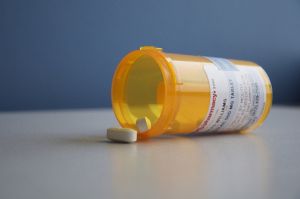[ad_1]
If you are one of the 22 million people in the U.S. at risk of noise-induced hearing loss, what if we told you that in the not too distant future it might be possible to cure or prevent certain types of hearing loss with a pill?
That isn’t as far-fetched as it sounds. Drug trials are underway that might make it possible to prevent or even cure some forms of hearing loss with medication by the year 2020. Currently, five drugs to treat or prevent hearing loss are in the final stages of clinical testing, with another 13 drugs in the early stages of development.
Preventing hearing loss

promising results in search for hearing
loss treatment and prevention.
Rather than focusing on the difficult task of regenerating structures within the ear that would restore lost hearing, many of the new drugs being tested are geared toward preventing hearing loss in the first place. That being said, there are a variety of drugs in development to cure a multitude of hearing related issues, from tinnitus to noise-induced hearing loss to damage from ototoxic medications.
One study that has shown tremendous promise is a collaboration between the Southern Illinois School of Medicine and the Department of Defense to research an amino acid called D-methionine. Testing is currently underway to determine whether the common micronutrient could help preserve hearing for those in noisy occupations, such as the military. Using soldiers at the firing range at the Army’s Drill Sergeant Instructor Course at Fort Jackson, South Carolina as subjects, Dr. Kathleen Campbell and her research partners are hoping to develop a drug that could prevent or reduce both noise-induced hearing loss and tinnitus.
The soldiers were chosen for the study due to the fact that, for them, hearing loss and tinnitus are ever present realities due to artillery and gunfire. More than 800,000 veterans are currently receiving compensation due to hearing related issues.
D-methionine is an antioxidant found in certain fermented dairy foods such as yogurt and cheese, so researchers already know it is safe for human consumption. The pre-clinical studies show that D-methionine has the potential to reverse noise-induced hearing loss if started within seven hours after the damage occurs.
Treating noise-induced hearing loss
Sound Pharmaceuticals is also looking into a drug that could help reduce oxidative damage to the ear and prevent noise-induced hearing loss. The scientists at Sound are testing a man-made compound called ebselen. So how does it work? Ebselen acts exactly like another enzyme in the body responsible for recharging a cellular antioxidant called glutathione. When glutathione is charged, it blocks the generation of reactive oxygen species, also known as ROS. Since ROS is suspected to be the oxidation process that destroys the delicate hair cells in the inner ear, blocking it would be a major victory against noise induced hearing loss.
The results, thus far, are promising. In one trial, ebselen was shown to reduce temporary hearing loss in 60 percent of those who took the drug, as opposed to only 20 percent of those who took a placebo. And ebselen works quickly; on average, those for whom hearing was restored had full hearing in just 1.3 hours. On the other hand, the wait for hearing to return was 24 hours for those given a placebo.
Possible applications for ebselen not only include reducing the risk of noise-induced hearing loss, but also for preventing hearing loss in patients exposed to certain chemotherapy drugs or the class of antibiotics known as aminoglycosides.
Repairing the damage
When it comes to repairing damage after the fact, Auris Medical might have a solution in the not too distant future. Though not currently a pill, their experimental drug AM-111 has had positive results in treating hearing loss when injected into the middle ear in gel form. The key to successful treatment with AM-111 appears to be application within 48 hours after damage occurs. AM-111 has two parts: a synthetic peptide which piggybacks onto a cross membrane transporter. When hair cells and neurons in the inner ear become stressed, whether due to loud noise, ototoxic medication or infection, they can become inflamed or die. The synthetic peptide portion of AM-111 is actually able to inhibit the enzyme that causes all of that stress (and thus damage).
“We are not targeting chronic hearing loss, but we are coming in here with the potentially first-in-class treatment for acute hearing loss,” Thomas Meyer, CEO of Auris says. “If left untreated, that acute hearing loss will become chronic.”
The drugs have potential occupational uses, such as for military personnel or firefighters, for example, as well as possible recreational uses. Perhaps in the future those attending a sporting event or concert will be able to take preventative medication ahead of time.
It is important to note that when it comes to prevention of noise induced hearing loss, researchers stress that these drugs are meant to be used as a supplement to hearing protection, not a substitute. Dr. Kathleen Campbell of SIU agrees. “This is an adjunct. This is not in place of wearing physical hearing protection. Now, one of the big advantages of pharmaceutical hearing protection is it does not cut down on situational awareness. It gives you another level of protection without sacrificing your ability to hear your surroundings.”
[ad_2]
Source link

